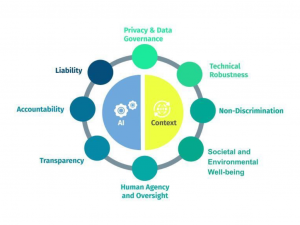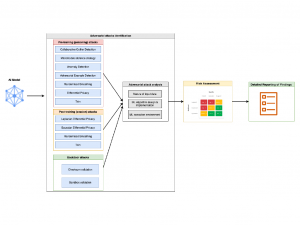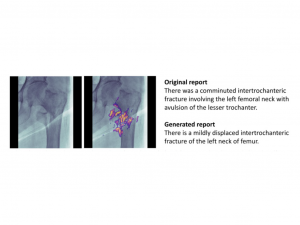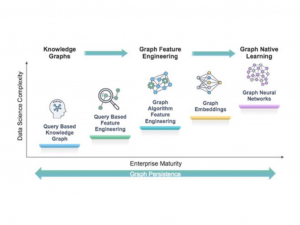BLOG
The ethics implications of AI and machine learning are becoming increasingly relevant due to their implementations across several sectors. This is the case also for their application to the manufacturing domain, which is still a quite new application of AI technology.
Partner Spotlight – Ford Motor Company
Name: Javier Colomer Barberá Job title: New Technologies Engineer Organization: Ford Motor Company Bio: Javier Colomer is a Telecommunications Engineer from the Polytechnic University of Valencia.
XAI Model Guard: The XMANAI AI Models Security Framework
As manufacturing organizations are embracing the Industry 4.0 initiative that is revolutionizing the manufacturing sector towards the realization of smart factories, the adoption rate of technologies related to Artificial Intelligence (AI), machine learning, and analytics is also growing.
Explainable AI: a key to trust and acceptance of AI-based decision support systems Artificial intelligence is often based on complex algorithms and
Partner Spotlight – CNH Industrial
Name: Claudia Campanella Job title: Manager of Ergonomics-HMI-VR-AR Organization: CNH Industrial Bio: Claudia Campanella graduated in Industrial Design at the Polytechnic of Turin, realizing a thesis in physical ergonomics. She started working at Fiat Auto in 2000 and at the same time, she attended the Master in Ergonomics in which she created a thesis in cognitive ergonomics.
Industrial Asset Graph Modelling in XMANAI
In the Industrial sector specifically, graph networks can describe pathways of IoT devices and sensor networks (Aggarwal, et al., 2017) in the framework of predictive maintenance, or represent associations between resources, daily workload and production in decision-making and dynamic scheduling problems (Hu, et al., 2020).
Archives
- Knowledge Transfer and Replication Roadmap
- XMANAI Scientific Highlights and Publications
- X-by-Design
- XAI for Metrology at UNIMETRIK: Smart Semi-autonomous Hybrid Measurement Planning
- Towards Process and Production Optimisation with XAI:The CNH Use Cases
- Holistic Production Overview using XAI technologies: The Ford use cases
- XAI Applications in the Direct to Consumer (D2C) market. The Whirlpool use cases
- XMANAI Provenance Engine: Tracking data provenance and data lineage
- The XMANAI Platform and Tools Package
- XMANAI On Premise Environment
- Models Catalog Component of the Platform
- Explaining Transformers
- How are the final MVP features contributing to the X-By-Design Concept?
- The Power of X-by-design: Pioneering Transparency and Explainability through Design
- Hackathon Event: Paving the Way to Transparent AI in Manufacturing with XMANAI
- Intelligent ETL Solutions for XMANAI: API- and File Data Harvester
- XMANAI Centralized Models Execution and Visualization Environment
- Industrialization Approaches to Explainability and the XMANAI Cases
- Ethics considerations for manufacturing XAI: the XMANAI Ethical Evaluation Framework
- Partner Spotlight – Ford Motor Company
- XAI Model Guard: The XMANAI AI Models Security Framework
- Explainable AI: a key to trust and acceptance of AI-based decision support systems
- Partner Spotlight – CNH Industrial
- Industrial Asset Graph Modelling in XMANAI
- XMANAI Validation Environment for AI Models
- zExplAIn, Improving Manufacturing Processes with Explainable AI
- XMANAI partner spotlight – Deep Blue
- Technical and Socio-Business assessments of AI Maturity in pilots of Explainable AI
- XMANAI partner spotlight – UNIMETRIK
- AI Algorithms Lifecycle Management and Collaboration
- XMANAI partner spotlight – Knowledgebiz
- XMANAI partner spotlight – UBITECH
- A First Glimpse into the XMANAI platform
- XMANAI partner spotlight – Whirlpool
- Overview requirements
- XMANAI partner spotlight – Athena Research Center
- Industrial Assets Provenance in XMANAI
- XMANAI partner spotlight – Innovalia Association
- The Draft Catalogue of XMANAI XAI Models
- XMANAI´s Evaluation Framework
- XMANAI partner spotlight – Suite5
- XMANAI Reference Architecture: Perspectives
- Security Aspects of Industrial Data Management
- XMANAI partner spotlight – AiDEAS
- What is the XMANAI Minimum Viable Product (MVP)?
- XAI in Manufacturing
- Data Asset Management in XMANAI
- XMANAI partner spotlight – Tyris AI
- XMANAI partner spotlight – Politecnico di Milano
- Education role in AI technology implementation in industry







